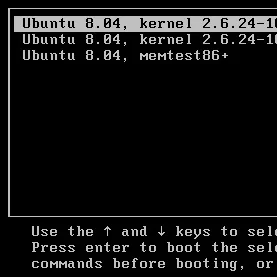OpenSUSE Developers Continue Discussing x86_64 Microarchitecture Feature Levels

As I wrote about in early March, the ALP effort has been looking at raising the x86_64 CPU requirements and potentially going as far as the x86-64-v3 feature level where AVX-enabled CPUs could be required.
Three weeks ago in this issue tracker for openSUSE it was reported:
I just received confirmation that ALP Proof of Concept in Sept/Oct 2022 will have x86_64-v3 enabled.
SUSE release manager Lubos Kocman went on to comment though in that ticket that it's possible SUSE ALP may target x86_64-v3 but openSUSE may end up going for x86_64-v2:
The openSUSE ALP is still [being discussed], as we can decide re-build binaries or re-use ones from SUSE (that would be the Closing the Leap Gap way).
My preference would be to go for -v2 in "openSUSE ALP" if we decide to rebuild. We've basically discussed the same on the previous Community WG meeting.
Meanwhile happening on the openSUSE Factory mailing list has been a discussion around the x86_64 micro-architecture feature levels. In this mailing list thread it was initially raised to use the x86-64-v2 target for openSUSE Factory, which would mandate x86_64 CPUs support some additional features like SSE4.2 and POPCNT but stop short of requiring AVX or FMA and BMI.
That mailing list thread also brought up the current issues around x86_64 micro-architecture feature levels that they are rather arbitrary sets and at the moment do not integrate well into package management solutions, etc. Since ultimately it would likely work the best if multiple feature levels could be supported simultaneously and ideally just offer multiple builds for the most performance-sensitive and popular packages where making use of newer x86_64 instruction set extensions prove very beneficial as opposed to rebuilding the entire archive.
That then led to this RPM discussion ticket upstream over possibly reworking how architectures are handled but with no tentative code or solid proposals yet. It would be great to see RPM and other package management software out there better embrace the x86_64 feature levels to allow for more robust package handling particularly for where a subset of packages may be available and as part of the package metadata being able to effectively communicate any CPU feature requirements.
As far as the ALP requirement bumping goes, it appears SUSE ALP's proof-of-concept later this year indeed will target x86_64-v3 while on the openSUSE side it appears not set in stone yet whether they aim for v2 or v3. This goes along with the broader discussions of other Linux distributions too (re)evaluating their x86_64 baseline and hopefully will lead to more handling improvements upstream with package managers, etc.
31 Comments

